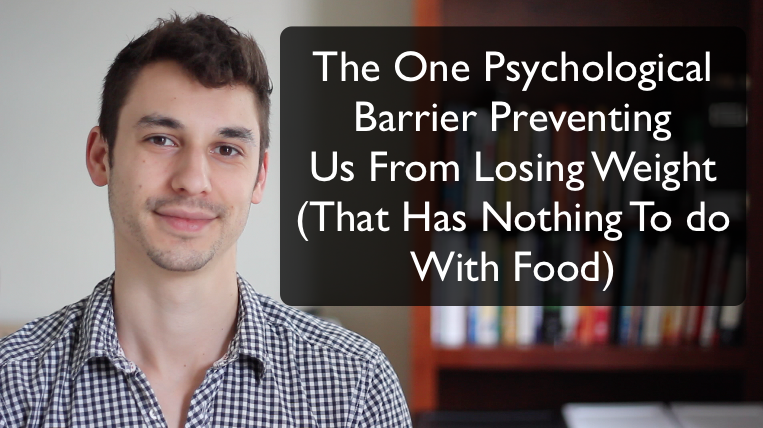
This Mindset is the #1 Cause of “Diet Failure”

We often chalk up failure to be because we got too busy or “the diet was too restrictive” or we were too stressed out.
But really, when we “fail” (and we all do at some point) it comes down to one, undeniable reason.
The narrative.
So what is it and why is it dominating us?
How We Sabotage Ourselves – Without Food – And What To do About It
What The Narrative Really Is, And What Triggers it To Make Us Fail
The narrative is one of the most tricky aspects of being healthy – it’s insidious because it’s the voice inside of us.
Sometimes, we don’t even realize that the voice in our head is not us.
You’re probably very familiar with it, since it’s the voice that we’ve been hearing since childhood – unfortunately, usually in negative ways.
“You’re so dumb, you’ll never be able to achieve that, your mom said you’d always be big, you’re always so unlucky,” are common narratives.
And the sad truth is that the narrative often determines how our life looks, and it’s all from a mostly made up story. So sometimes we find ourselves “failing” at a certain health goal (like losing weight), and we say, “SEE!!! I always fail!! I told you!!”
Over time, we just repeat this story and tell ourselves, “Yup, just like last time, I always fail.”
But the sad truth is that I’ve found that most of the time we can only point to a handful of isolated situations that make us believe we’re failures. Usually it’s only a couple of times. But the real damage occurs when we repeat the story of “I’m a failure” and we start believing it again.
The sad truth is that narratives are EVERYWHERE in life:
“My husband ALWAYS does that!” (Which when leads you to automatically assume he did something wrong next time).
“I’m SO unlucky!” (Which then leads us to assume ‘of course I got screwed… this is how it always goes for me’).
“I NEVER have enough money” (Which causes us to avoid pleasures, even if there were creative ways to make more money).
“Everyone says it’s all my fault” (Which then leads us down the road to being a victim in our life in every situation we can imagine).
So the truth is that narratives are everywhere – health, relationships, happiness – and they’re often based on a few isolated events, but are largely untrue otherwise.
The real danger occurs when we really start BELIEVING them on a daily basis, where we just begin accepting the story as true.
3 Of The Most Common Limiting Beliefs Around Weight Loss & Health
The first narrative:
“I always fail, so why bother trying?” The most common narrative I hear over and over is ‘why bother trying again?’ And it makes sense. If you really believe that you always fail, what’s the incentive to even try when you know it’s just going to mean suffering later?
The second narrative:
– The “I NEVER have enough time for the stuff I want.” It seems almost logical – I never have the time I need to do the stuff I want. I’m a busy parent. I’m a busy professional. I have all these responsibilities, and I don’t have the time or energy to take care of myself. This one is sneaky because you can rationalize it because it sounds logical – we’re all time-poor. We all could use more time. But it can become a tragic excuse over time for not doing something important to you (hint: like dreams).
The third narrative:
– The “Ughh this is going to require massive discipline and effort that I don’t have.” Another sneaky one – the reason why this is so insidious is because historically weight loss & health might’ve been drudgery for you. It really might’ve taken lots of effort. But there are ways to start small and see incredible results. I’ll profile a success story with Ryan soon who cultivated just one habit – drinking a smoothie – and lost 20 pounds without trying to lose weight. Yes, small habits can have huge returns.
How to Overcome The Narrative For Good
The main exercise I use for helping people overcome the narrative is TRACKING what your brain is saying.
I know, that sounds weird.
But if your brain is firing off self criticism and you don’t even realize it… how are you going to change anything? You can’t.
So for a week, I want you to keep a brain dump journal on your phone, on a note pad, or on some other device.
And every time you encounter something negative, you write down what your mind is saying.
So maybe you pass by the health books in the bookstore and see a new “revolutionary diet” on the book shelves, and find yourself thinking, “Oh, yet another thing that won’t work for me.”
Write it down.
Maybe you have a conversation with a friend who mentions her new detox program and you think “Eh, that won’t work for me, since I’m a <special snowflake> – woman over 50; super busy person; person that already tried that.”
Just observe, do a brain dump, and you’ll SEE a very clear narrative regarding the way you respond to the events around you.
And once there’s awareness there, you can see that the narrative isn’t entirely true. It’s just a story.
Today’s Tiny Habit
Do the brain dump exercise this week any time you encounter that mental chatter, and see what narratives show up.
It might surprise you, or they may make you realize why you are the way you are.
Either way, you’ll be infinitely better off.
– Alex
